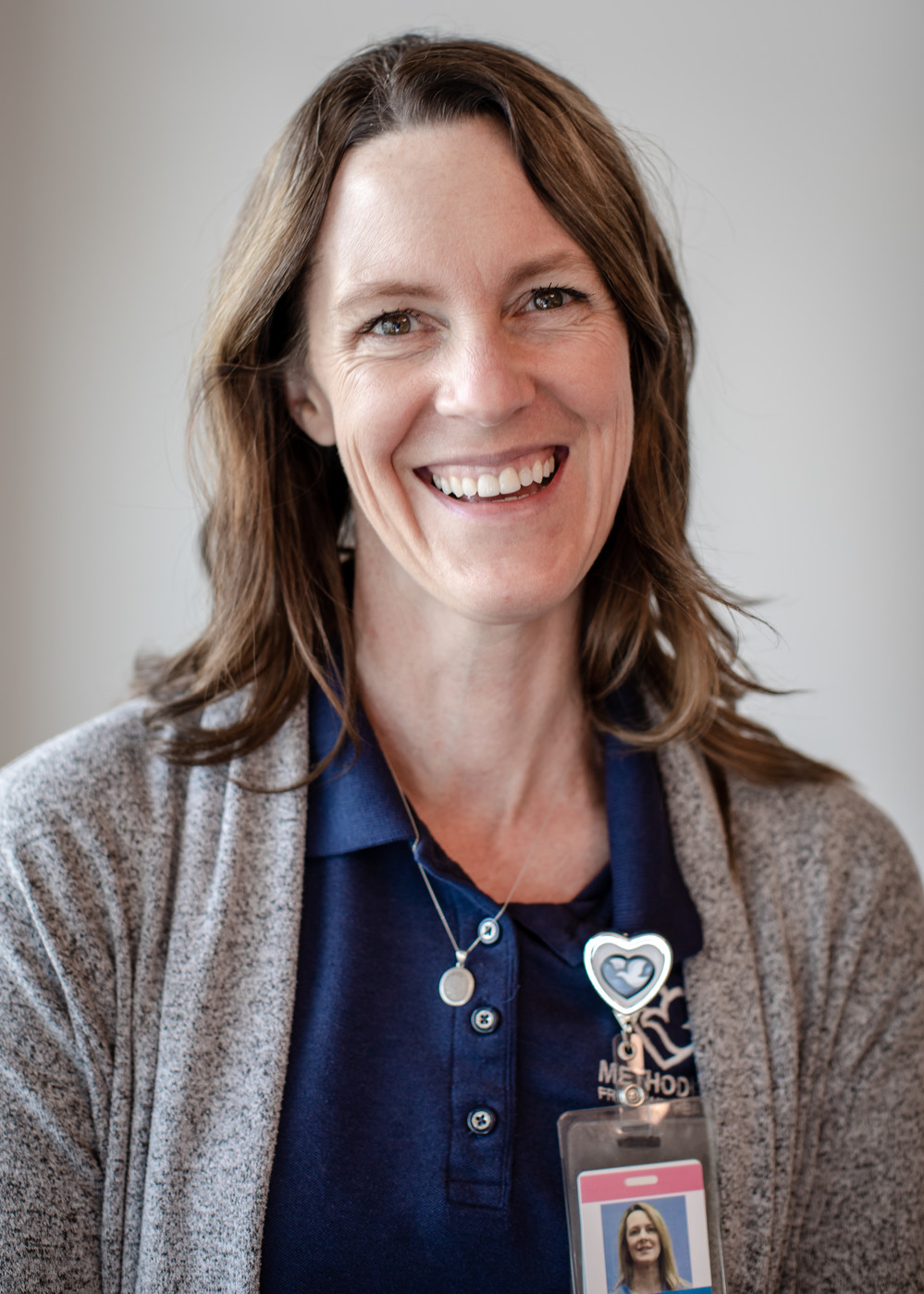
The Meaning of Care Magazine
Methodist Fremont Health Programs Blanket New Moms With Support
Published: March 16, 2022
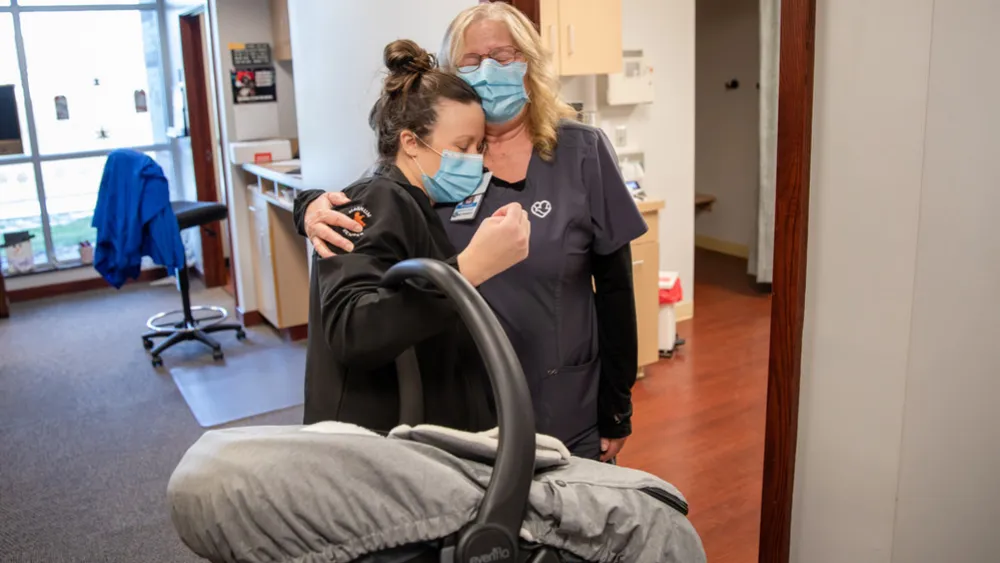
Home health nurse Crystal Godin was a key member of the team supporting Emma Eichelberger and her daughter, Hayden, after the baby’s birth in October.
Nine weeks after her daughter was born, Emma Eichelberger brought baby Hayden to the Methodist Physicians Clinic Women's Center in Fremont for an appointment with Tracy Moore, RN, IBCLC.
The December visit was part reunion, part checkup with Moore, a labor and delivery nurse and lactation consultant for Methodist Fremont Health. She’s also the hospital’s lead OB nurse navigator, offering a unique blend of personalized services and support to families during pregnancy and after childbirth.
As Moore guided the first-time mom from Wisner, Nebraska, to a private room, their rapport was easy to see. They chatted like old friends as Moore weighed the baby and reported good news: Hayden had gained weight in the past week. The conversation then shifted to a pesky diaper rash before Moore observed the Eichelbergers’ progress with breastfeeding.

“When you’re working with a lactation consultant, you’re very exposed,” Emma said. “You have to be very comfortable with that person. She’s just awesome at it. She’s very relatable. I can talk to her about everything.”
Moore has been building relationships with mothers like Emma for over three years through the OB Nurse Navigation program, which aims to complement the care patients receive during labor and delivery by navigating them through pregnancy, their hospital stay and postpartum recovery at home. Through those efforts and the Mom & Baby Home Care program, Methodist Fremont Health is blanketing families with prenatal and postpartum support to improve outcomes for mothers and babies.
Moore is especially passionate about the impact the programs can make.
“I really feel like when we support families to be successful, the whole community will benefit,” Moore said.
Navigating Moms to Success
Through the OB Nurse Navigation program, Moore and Bree Tranmer, RN, CLC, aim to connect with each of the roughly 300 women who give birth at the hospital each year.
The first meeting with a nurse navigator generally comes during a 12-week prenatal appointment with her OB/GYN. Depending on the mother’s needs, follow-ups and communication with the nurse navigator can continue for months after a baby’s arrival. Frequent topics of discussion include a breastfeeding assessment and education, having a strong support system, and the need for a breast pump. But Moore is also trying to identify challenges in other areas, such as mental health, domestic violence, substance abuse and social support. The goal is to identify parents’ needs during pregnancy, when they have more time to learn and prepare.
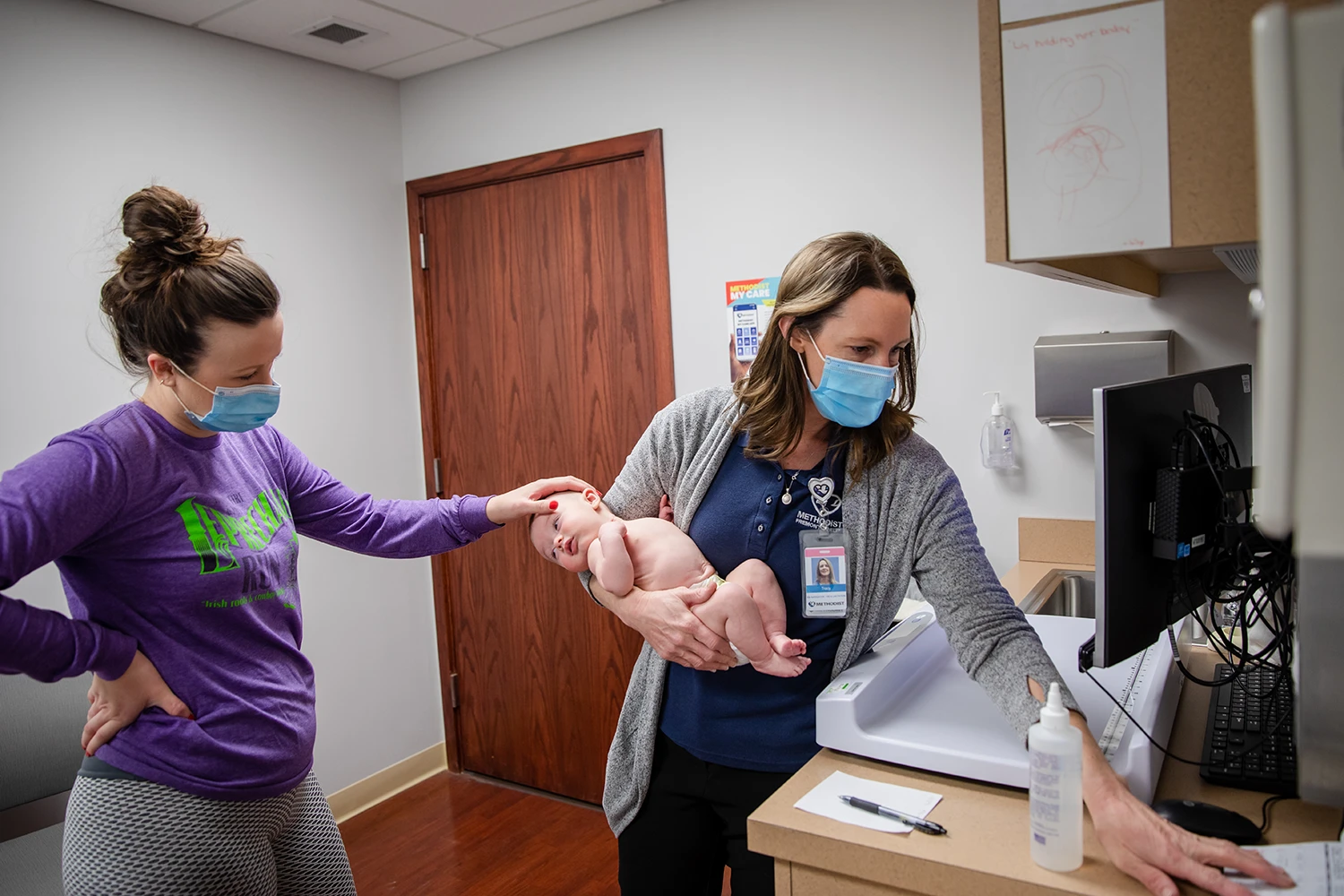
“To me, the biggest thing is comprehensive support and navigating them to whatever resources are most appropriate – through pregnancy and postpartum,” Moore said.
When appropriate, Moore connects mothers with social workers and other resources like the Fremont Public Schools Sixpence program, Lutheran Family Services and the federal WIC program. In some cases, the Mom & Baby Home Care program also serves a crucial role.
Thanks to support from the Fremont Health Foundation, the program offers free services to more than 30 mothers and their newborns annually by bringing home health nurses and social workers to them. Home visits can cover a range of topics, including well-baby care, home and car safety, feeding support, child development, self-care and emotional support, and referrals to community resources.
“Tracy takes the time to build that rapport with patients,” said Nicole Dix, DO, who is Emma’s OB/GYN. “When some of those issues come up that are tougher to discuss, the patients already know her and trust her, allowing her to help them gain access to resources and services outside of our office. The home care program is another great option because it’s so important to be able to observe patients in their own surroundings.”
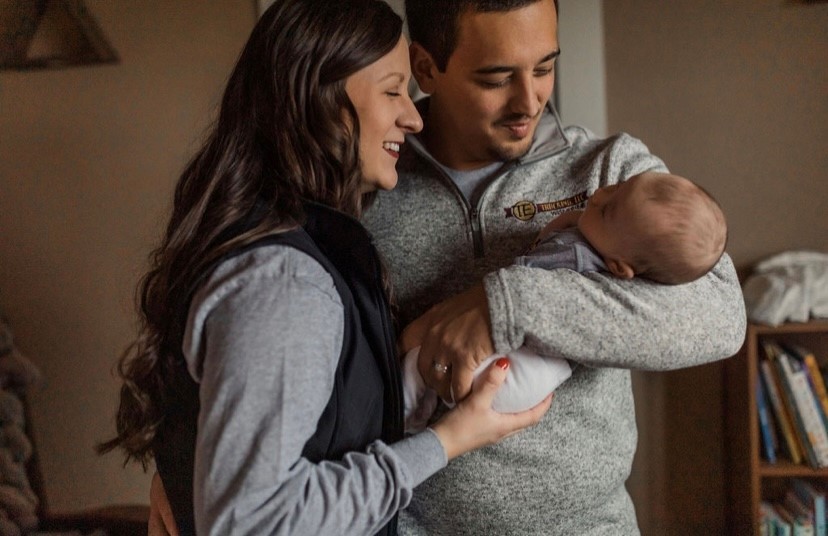
Emma Eichelberger with her husband, Tim, and daughter, Hayden. Siera Nikole Photography
Support When Moms Need It
Emma and her husband, Tim, knew they wanted to have children, but Hayden’s birth was still overwhelming.
“I think I was a little shocked,” Emma said. “I knew I was having a baby, and I was overjoyed. But at the same time, as they were putting her on my chest, I was like, ‘Oh, my gosh. Is this real? Is this really happening?’”
But, she added, “She was perfect.”
Then the challenges of parenthood began.
“That first night in the hospital was pretty rough,” Emma said. “Hayden wouldn’t latch. She wasn’t nursing well. As a first-time mom, you don’t really know how to handle that situation.”
The Eichelbergers found support that evening in the nursing staff, many of whom are mothers themselves and certified lactation experts. The next morning, a familiar face arrived: Moore, who’d been working with Emma and building her trust for months as they prepared for childbirth.
“Tracy was right there telling me that this is normal. It’s going to get better,” Emma said. “She had so many ideas to help.”
They tried different approaches to breastfeed Hayden and formed a plan for when the family left the hospital. Moore gave Emma her personal phone number to allow for frequent check-ins, and she made it a point to meet with Emma, Tim and Hayden after their first pediatric appointment five days later.
“To have somebody like that in your corner, she’s phenomenal,” Emma said. “I don’t know what I would have done if I didn’t have her checking in every couple of days. It would have been a rough journey without her.”
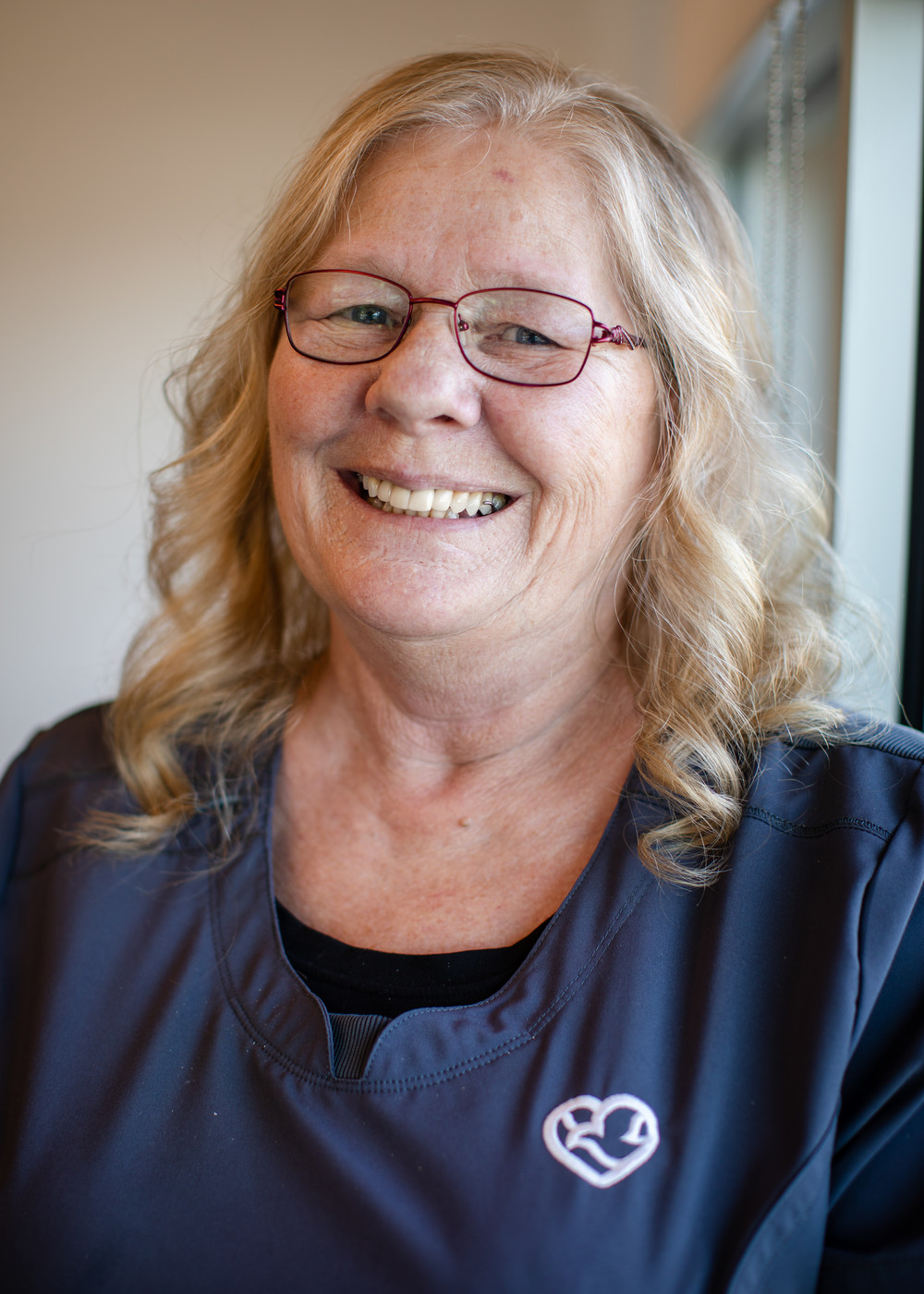
Sensing Emma may need additional support with breastfeeding and the emotional challenges that can follow pregnancy, Moore connected her with the Mom & Baby Home Care program. Over the next four weeks, home health nurse Crystal Godin, RN, made seven trips to Wisner to check on Emma and Hayden – offering breastfeeding advice, helping ease an acid reflux issue Hayden was having and simply being someone to talk to.
“It gave me peace of mind,” Emma said of the bond she developed with Godin. “If I had a problem, she would try to give me a solution to help. You knew everything was going to be OK because Crystal was going to come.”
“It’s complicated to have a baby and not know everything,” Godin said. “Mothers really do appreciate us coming in, helping them, teaching them and answering questions. There are no stupid questions.”
For Godin – who has three children, five grandchildren and another grandchild on the way – visiting moms like Emma hardly feels like work.
“I guess that’s why I love my job,” she said. “I’ve been a nurse for 31 years, and some of those things just come natural to me when I’m educating. It really just makes my heart swell knowing I can do something to make someone’s life easier.”
Just a Call Away
After that December office visit, Moore was confident the Eichelbergers had turned the corner. They were having more success with breastfeeding, Hayden was thriving, and Emma was making plans to return to work – just the kind of outcome the two Methodist programs aim for.
The good news also meant that appointments and calls with Moore were likely to become less frequent. But even when the calls finally end, Emma won’t forget Moore. She may even reach out just to catch up. After all, she has her number.
“She’s one of those people who you’re not going to want to stop talking to,” Emma said. “I’m probably going to be sending her a Christmas card every year. I’ll probably send her something on Hayden’s birthday. She goes above and beyond to make sure that you’re happy and healthy, and I’m so glad that I know her.”
Photos by Daniel Johnson
More Resources
- Read more from the spring 2022 issue of The Meaning of Care Magazine.
- Learn more about birth services at Methodist.
- Learn more about women's health services at Methodist.
- Read more inspiring stories about Methodist patients and providers.


